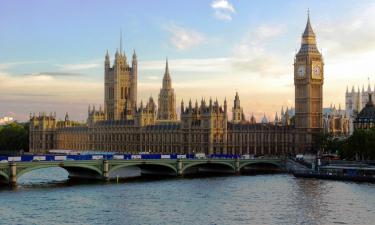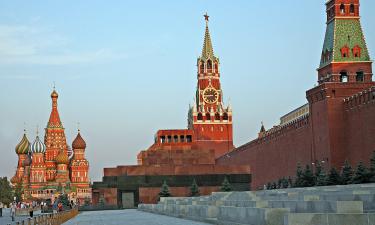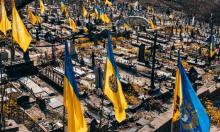Group of protesters demonstrate against Bush as he met South Korean president
A small group of protesters demonstrated Thursday against U.S. President George W. Bush as he met the South Korean president, where the two countries reaffirmed their cooperation on seeking to convince North Korea to abandon its nuclear weapons program. About 250 people gathered at the train station in the city of Gyeongju, carrying signs reading "Stop Bush" and saying they were opposed to the U.S. president's talks with South Korean President Roh Moo-hyun.
The group later attempted to march toward the hotel where the meeting was taking place, but was halted kilometers (miles) away from the venue by riot police. The demonstrators sat in the street, chanting slogans and making speeches.
Bush and Roh were holding a separate one-on-one meeting ahead of an annual summit of leaders from the 21-member Asia Pacific Economic Cooperation forum in the nearby port city of Busan.
In Busan on Thursday, less than 100 people rallied in support of Bush and condemned North Korea. They carried signs reading "We love USA" and with crossed-out portraits of North Korean leader Kim Jong Il. Earlier Thursday in Gyeongju at the anti-Bush demonstration, about 40 people formed a picket line on a sidewalk to chant slogans against the U.S. military's plans to relocate its main base in South Korea to a city outside the capital, Seoul. The group clashed briefly with police as it started marching to join the other demonstrators at the station, but authorities then let them pass.
"We are opposed to U.S. imperialism and the U.S. military presence on the Korean Peninsula," said one activist, Mun Jeong-hyeon. "We are against turning Korea into a base for war."
Other protest placards criticized the APEC forum and free trade. Anti-American demonstrations aren't uncommon in South Korea, where some remain angry about the continued presence of U.S. troops as a legacy of the 1950-53 Korean War. Those sentiments flared in 2002 after U.S. soldiers were acquitted in a road accident that left two teenage girls dead.
Some 32,500 U.S. troops are based in South Korea, although the number is set to drop in coming years as part of a Pentagon realignment of its forces around the world, reports the AP. I.L.
Subscribe to Pravda.Ru Telegram channel, Facebook, RSS!





